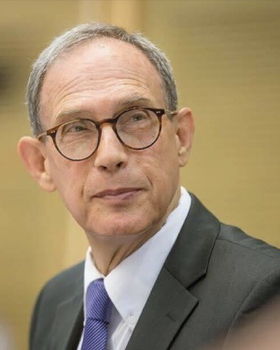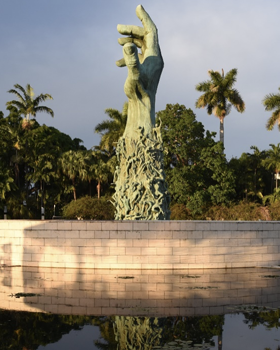Feb 1, 2022
An Interview With Nachman Shai, Israeli Minister of Diaspora Affairs

Israeli Minister of Diaspora Affairs Nachman Shai recently sat down for a wide-ranging interview with The Jewish Federations of North America (JFNA). Shai served as Director General of JFNA’s office in Israel and Senior Vice President of UJC before being elected to the Knesset more than a decade ago, serving first as a member of the Kadima Party and then being re-elected as a member of the Labor Party. In the interview, he discussed how Israel can improve its efforts to reach out to the North American Jewish community, especially to the members of the younger generation who feel less of a connection to the Jewish State. He also discussed his views on the controversy over prayer at the Kotel.
Q: What do you think are the most important tools for connecting North American Jews, particularly the younger generation, to Israel?
A: The best way is for them to visit the country through Taglit-Birthright, MASA, and other programs. If we can’t get them to come here, then let’s reach out to them wherever they are, especially on college campuses. We have at least three national organizations — Hillel, Chabad, and Olami — who are running programs on behalf of the Ministry of the Diaspora. We haven’t done enough on the digital front, through what I call digital dialogue. It’s the most important challenge of my present position — not to lose the young generation, but to gain their confidence and attention, to bring them into the system either while they are in university or after graduation. That’s the best investment in the future of the North American Jewish community and even for the Jewish world as a whole.
Q: Can you explain a bit more about what you think needs to be done in the digital or social media space?
A: One of the conclusions from last summer’s conflict with Hamas was that we weren’t doing enough in this space. I wasn’t yet a government minister — I was a visiting professor at Duke University — but I was watching it from a distance and I was very upset. They said that we “lost” the social media war. There is no reason why Israel can’t develop ideas, content and technologies to reach out to every target group in the world, including in North America. My students are totally dependent on their devices; if they don’t come to us, then we need to come to them. We may not always be able to convince them, but at least we can present them with the facts of whatever situation or crisis we’re dealing with. We are teaching Israeli culture, history, and, of course, how to combat antisemitism. We can help North American Jewish communities to prepare themselves for any kind of antisemitic attacks, whether verbal or physical.
Q: You worked for a number of years as the head of JFNA's Israel office and then you worked for the UJC, the predecessor organization to JFNA. What was the most important thing that you learned during that period?
A: I learned more than anything the strategic importance of the relationship between Israel and the North American Jewish community. I realized that we have to invest a lot on both ends. On the Israeli side, we need to form relationships with Israeli politicians and other leaders so that they can understand better the relationship between American Jewry and Israel. We have also led a number of delegations of members of the Israeli media to the United States. There’s a mix of arrogance and ignorance on both sides that we need to overcome to find better ways to communicate with each other.
Q: What is the importance of Federations to your work in Israel?
A: Federations have been one of the key reasons for Israel’s success. It’s a glorious story of friendship and love between North America and Israel. In all of Jewish history, there has never been a success story like that of the Jews of North America. And we appreciate very much your continuing support — not just financial support, but political support as well. We need two-way communication, not just from North America to Israel, but from Israel to North America. We are asking not just what you are doing for us, but what we can do for you through our knowledge and know-how. I was the only government minister who visited Surfside after the building collapse. I delivered a message of sorrow and comfort. When we are in trouble, you come to help us, and when you experience dark days, we are there to extend our hand to you and say that we are together.







